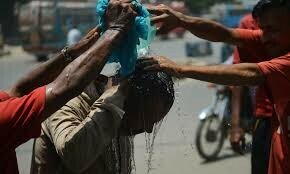KARACHI: On an evening, policemen patrolling the Arakan Abad neighborhood of Korangi stopped Shamsul Hassan, a young fisherman, started frisking him and asking questions, and then let him go after taking a bribe of Rs200.
“Harassment at the hands of Karachi police has become a routine matter for our community as we do not have Pakistani national identity cards despite having been living in the country for the past 35 years,” says Hassan, a Burmese Muslim known as the Rohingya, who was born in Karachi.
Hassan is one of the thousands of young Rohingyas whose parents had fled persecution in Burma (now called Myanmar) over the past 35 years to Karachi.
In the early years of their migration, they felt comparatively comfortable and welcome in the Muslim state of Pakistan. Their large-scale migration had made Karachi one of the largest Rohingya population centres outside Myanmar but afterwards the situation started turning against them.
Although Rohingyas and Bengalis live side by side in dozens of shantytowns of Karachi, mainly in Bin Qasim and Korangi towns, both communities are very different from each other culturally and linguistically.
But the Rohingyas generally call themselves Bengalis. “It is because they want to show that they have also migrated to Pakistan before the fall of Dhaka and it helps them get naturalised citizenship,” said Saleh Shahabuddin, a Bengali community leader in Machchar Colony area of Keamari.
According to an estimate of the National Alien Registration Authority, there are about half a million Rohingyas in the city. But experts and community leaders believe their number is higher as the illegal immigrants are seldom counted in national census while the last time a census was held in Karachi was in 1998.
Experts say that migration of both Bengalis and Burmese started in 1980s, which had continued intermittently until 1998. “Because of a liberal policy towards migrants and refugees during Gen Ziaul Haq’s military regime, major Rohingya exodus took place (to Karachi),” said Zia Ahmed Awan, a lawyer who worked extensively on issues of illegal immigration and human trafficking.
During Zia’s regime, they were brought to Pakistan for two purposes - study in madresshas and participate in Afghan jihad. “Zia offered them residence permits in Pakistan and thousands landed in Karachi. But they were never granted citizenship,” said Mr Awan.
Interviews with a number of community leaders in Arakan Abad, which was named after the Arakan province in Myanmar, suggest that non-issuance of national identity cards is the biggest problem the community faces.
“Even as being third-generation and born in Karachi, the National Database and Registration Authority is not issuing us identity cards, making the community vulnerable to harassment by law enforcement agencies,” said Mohammad Shoaib, a Rohingya community leader.
“It compels the community youth to join ethno-political and religious parties, Jihadi groups and criminal gangs to seek shelter and security and in return, these groups use them for their political and violent activities,” he said.
They also complain that their neighborhoods across the city are deprived of basic civic facilities, such as safe drinking water and proper sewerage system, forcing community members to live in filthy conditions.
In 2001 local bodies elections, several Burmese activists, along with Bengali community leaders, became nazims and councillors from their majority areas in Karachi on tickets of different political parties, especially the Jamaat-i-Islami (JI) and Pakistan People Party and as independent candidates as well.
“Because the Muttahida Qaumi Movement (MQM) had then boycotted the local bodies election, a number of Rohingya people became part of local bodies system, which helped the community resolve civic issues in their neighborhoods,” said Shoaib.
In 2012 general elections, Burmese and Bengali community had contested elections from the platform of their own political parties, especially Pakistan Muslim Alliance (PMA) and Pakistan Muslim League-Sher-i-Bangal faction.
The PMA did not win any seat but bagged significant votes from eligible Burmese and Bengali communities in Korangi and Bin Qasim areas. For example, in 2002 general polls, the PMA candidates bagged around 5,000 votes from each of NA-254 (Korangi) and PS-129 (Bin Qasim) constituencies, only from Burmese and Bengali neighborhoods.
However, after MQM formed a special committee for the Bengali and Burmese communities called the Pakistan Bengalis Action Committee (PBAC) in 2005, the PMA abandoned its activities. The PBAC, led by Shaikh Feroz, a former town nazim of Orangi, is now active in all Burmese neighborhoods in the city.
Rohingya community is more inclined towards religion and they send their children to madressahs. It is a major reason that many religious parties, especially the Ahle Sunnat Wal Jamaat, the JI and the Jamiat Ulema-i-Islam-Fazl, have their organisational set-up in Burmese neighborhoods.
Community leaders say that law enforcement agencies have arrested a number of Rohingya people in different slums of the city in recent months but mainly for their involvement in ethno-political violence and street-crimes.
According to the United Nations, the Rohingyas are ‘one of the most persecuted groups of people in the world’. The community in Karachi is also worried over the ethnic cleansing taking place in Myanmar. It has organised several protests in the city against the oppression and conducted fund-raising campaigns for helping their kith and kin in Myanmar.
“A number of Rohingya members living in Arakan Abad have lost their relatives in recent attacks by Buddhist mobs in June 2012 in Myanmar,” said Mohammad Fazil, a local JI activist.
Rohingyas in Karachi regularly collect donations, Zakat and hides of sacrificial animals and send these to Myanmar and Bangladesh to support the displaced families.
Published in Dawn, February 23rd, 2015
On a mobile phone? Get the Dawn Mobile App: Apple Store | Google Play















































